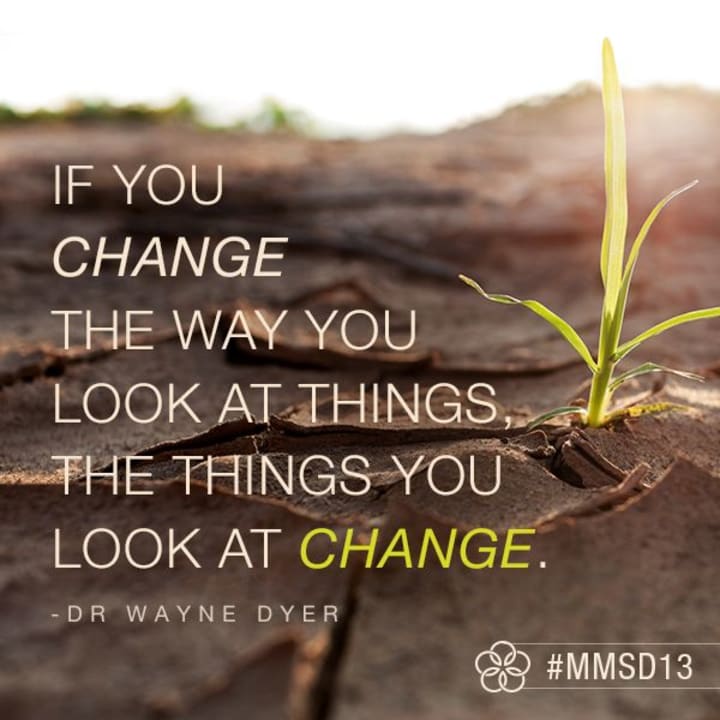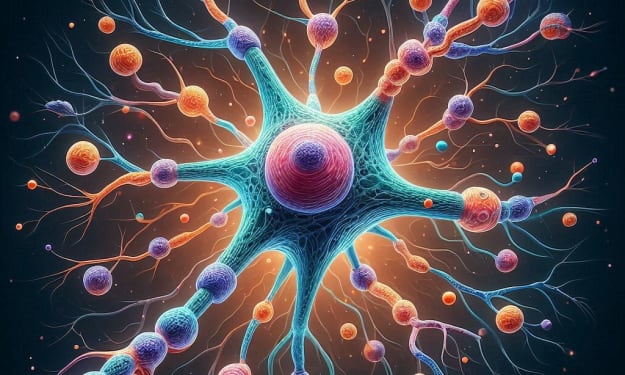
Expectations... We all have them. They're those ideas that float around our mind before being sewn into the soil of our conscious selves. They grow as weeds from this mental earth, strangling our garden of values and beliefs. Even worse, like weeds, they spread rapidly until our emotions and identities have been altered to suit their needs. Expectations... We all have them, but what can we do about it?
How Do Expectations Affect Us?
There are many people in this world who misunderstand the major differences between hope and expectations. When one has hope, they are not expecting things to change, they are merely hoping that they will, perhaps by working harder or digging into their inner strength. However, when one expects things to change, they lose their diligence and will to change things; they'd rather wait for the universe, God, karma, or some other personal source to alter the course of their lives.
When we have expectations of something, we can either be disappointed or develop an ego. For example, if one expects to have a great day, but that day takes a turn for the worse, they will become disappointed. This disappointment can become overwhelming to the point where the individual simply expects to be disappointed every time. On the other hand, if one assumes or expects a particular outcome with success, they could develop an ego and fall into fallacy. In psychology, this is known as the "knew it all along fallacy", where the individual becomes so centered around their predictions and expectations, that they believe they knew what was going to happen before it even did.
We are all guilty of this fallacy. In fact, it happens so often that we aren't even aware of it. For instance, if I misplace my phone and enter that state of heart-wrenching panic, I may blame my younger brother for snatching it from my bedside during the night like he had the week before. Because of this, I developed the expectation to find the phone somewhere on him or in his space. Let's assume I found the phone in the bathroom because I forgot it on the counter after my shower; the expectation is then false. Now, let's assume I found it under his pillow; the first words out of my mouth would be "I KNEW IT!". But did I really know? Of course I didn't; I assumed and expected those results, and then boosted my own ego by stating that I knew exactly what happened to my phone. The reality is that this expectation was also false until proven correct by the evidence.
This is the problem with expectations, we want them to be true, so we believe that they are. The big picture is that expectations are both true and false. How could this be? Well, it's actually quite simple. You see, when we have an expectation of someone, that expectation is true to us, but is, more often than not, false in reality. For example, you see a cute boy across the bar and you think to yourself that he seems like a nice guy. Then, this "nice guy" comes to talk to you and you begin searching for those qualities of a nice person, when in fact he's quite arrogant, self-absorbed, and is only in it to get to home plate. That expectation of him being a nice guy has shaped your behavior such that it has made you blind to the reality of his personality. This becomes a BIG problem, especially in relationships when we let our expectations and assumptions blind us from the truth or bring us to disappointment. Now what if this guy was, in fact, nice, well you've just entered that state of fallacy again as you are probably whispering to yourself right now, congratulating yourself on how "correct" you were.
Can You Really Just Stop Expecting Things?
I find this a difficult question to answer, as the human brain has developed itself to assume, expect, and predict everything we sense in our daily lives from our friends and family to the distance of a storm cloud. Some expectations are good, such as your expecting a hot and sunny day, so you put on some sunscreen before heading out the door. However, some expectations are bad, such as expecting to find a man or woman who matches an impossible standard.
The truth is, we can't entirely stop expecting things and making assumptions, as it is human nature and we are designed this way. The good news is that we can alter what we do after our expectations have been proven either true or false and manage the effect that those expectations have on our behavior. There are four things that we can stop expecting in people and our lives to improve our emotional and mental well-being and strengthen our relationships.
1. Stop Expecting People to Agree With You
Not everyone in this world is going to agree with us. With over seven billion of us on the planet, everyone has different experiences, values, beliefs, perspectives, skills, emotions, and desires. It is entirely impossible for someone to agree with you on everything, as you live two different lives. When we expect people to agree with us, we tend to be more angry or aggressive when countering their opinion. As humans, we all feel that sensation of a sinking heart and tapping feet when someone says they don't agree with us, but we can either attack them for their differences, or accept that they cannot perceive exactly what we do. Now, this doesn't mean that because people don't agree with us, we should all keep quiet, never debate on important topics, and walk around like Blanche from A Streetcar Named Desire with a thick shield from the truth. What this does mean is that we should embrace everyone's differences and stop expecting them to match our own.
2. Stop Expecting Perfection
We would all love to live in a world free from violence, crime, mistakes, and regrets. The truth is that mistakes shape us into stronger beings, and at no stage of life do we stop making them. Perhaps we have already made ten mistakes today, but they change our lives, perspectives, and mindsets and mold us into who we are right now, in this moment. When we expect someone to be perfect, we tend to focus on the mistakes they make and not the good they do. In psychology, this is known as the negativity bias, when a person focuses on a negative action more intently than an equally positive action. Our society does this all the time, by broadcasting negativity all over social networks and digital media. As humans, it's difficult to not be affected by such negativity. Sure, positivity is nice and heart-warming, but negativity is so much more dramatic and emotional, thus we let it alter our mindset easily. When we stop expecting everyone and everything to be perfect, we can focus less on the mistakes or negativity and more on how to help and guide them down a better path.
3. Stop Expecting Good Karma
We've heard it a dozen times, karma can be a female dog (this is quite funny in my opinion, considering I have a female dog called Karma). But something we don't talk about much is good karma, when we do something "good" and something positive happens to us in return. The only problem with this is that not every good deed has a return policy. Just like the young boy of Hyde's Pay it Forward, some good deeds have a nasty plot twist. When we expect good things to happen to us simply because we are "good people", we enter that mindset of "why does everything good happen to the wrong people, but everything wrong happens to me". The truth is, everyone experiences their fair share of good and bad, and life has a cruel way of putting us down when we're at our worst. When you stop expecting good things to happen, you become more focused on making the happen and are less likely to be disappointed by a negative outcome.
My Karma

Just Look At This Cute Puppy Face!
4. Stop Expecting Things to Stay The Same
We live in a universe of unending change; nothing is stagnant, nothing is stuck, and nothing is permanent. The universe itself has its own time limit, for nothing lasts forever. Our brain changes every second of the day. After reading this, you will be an entirely different version of yourself than you were five minutes ago. In fact, you change every single time you read the next word in this sentence. This is known as brain plasticity, and it's responsible for the theory behind "practice makes perfect", such that our brain rewires itself trillions of times to adapt to the world around it. That being said, that friend you had in grade school who was super bubbly and hyper may now be suffering from depression and social anxiety. Perhaps you and your siblings aren't as close as you were before because you're now older. Maybe you feel like you can't even recognize your own son or daughter. The brain is the most complex object in the universe and it rests upon your two shoulders, but because of its complexity, we can't expect anyone to stay the same. Our beliefs, values, and morals will change every day. To reduce that feeling of loss or grief for what we once had, we must learn to accept that everything changes whether we like it or not. As many generations before have understood, "it is what it is".
How Can I Change?
There is no Matrix pill or elixir that Sabrina the Teenage Witch can brew for us, but we can change our perspective by opening up to the idea that not everything is the way that it seems and nothing is set in stone. It's all a matter of perspective. Some methods that I have used to reduce the anxiety of the unknown and the disappointment that unfulfilled expectation can bring are mind-based meditations once a day, a time for self-reflection when I can catch myself expecting something unrealistic, or even spend the time doing something I love, like writing or singing. Overall, it is our responsibility to change our lives, and the biggest way to do that is to change our mindset first.

About the Creator
Justin Gignac
Hello there! I am a registered nurse with a major passion for writing and language. I enjoy writing about science fiction, mindfulness, health, psychology, wellness, philosophy, and the mysteries of being human.
Enjoyed the story? Support the Creator.
Subscribe for free to receive all their stories in your feed. You could also pledge your support or give them a one-off tip, letting them know you appreciate their work.






Comments
There are no comments for this story
Be the first to respond and start the conversation.